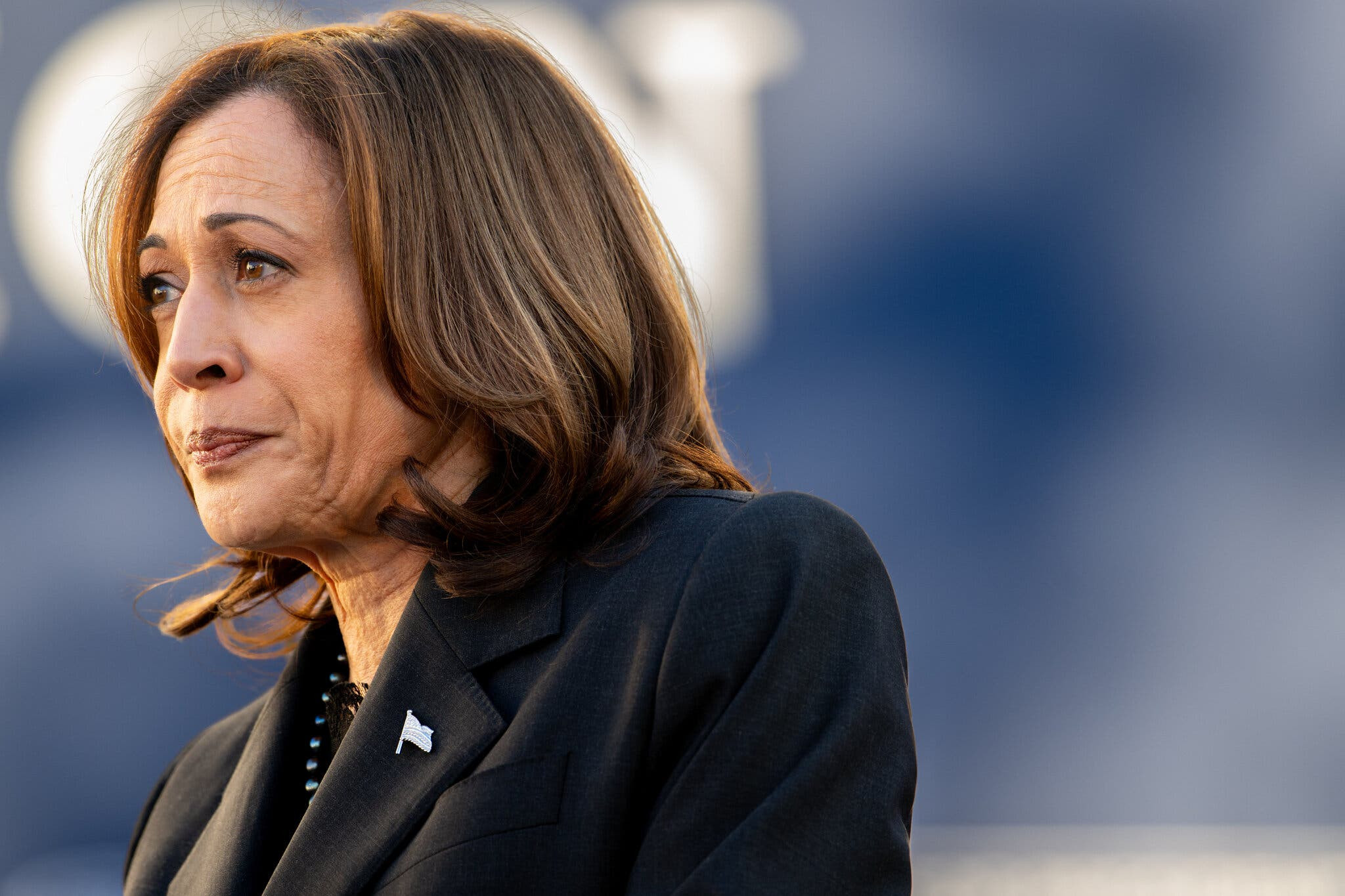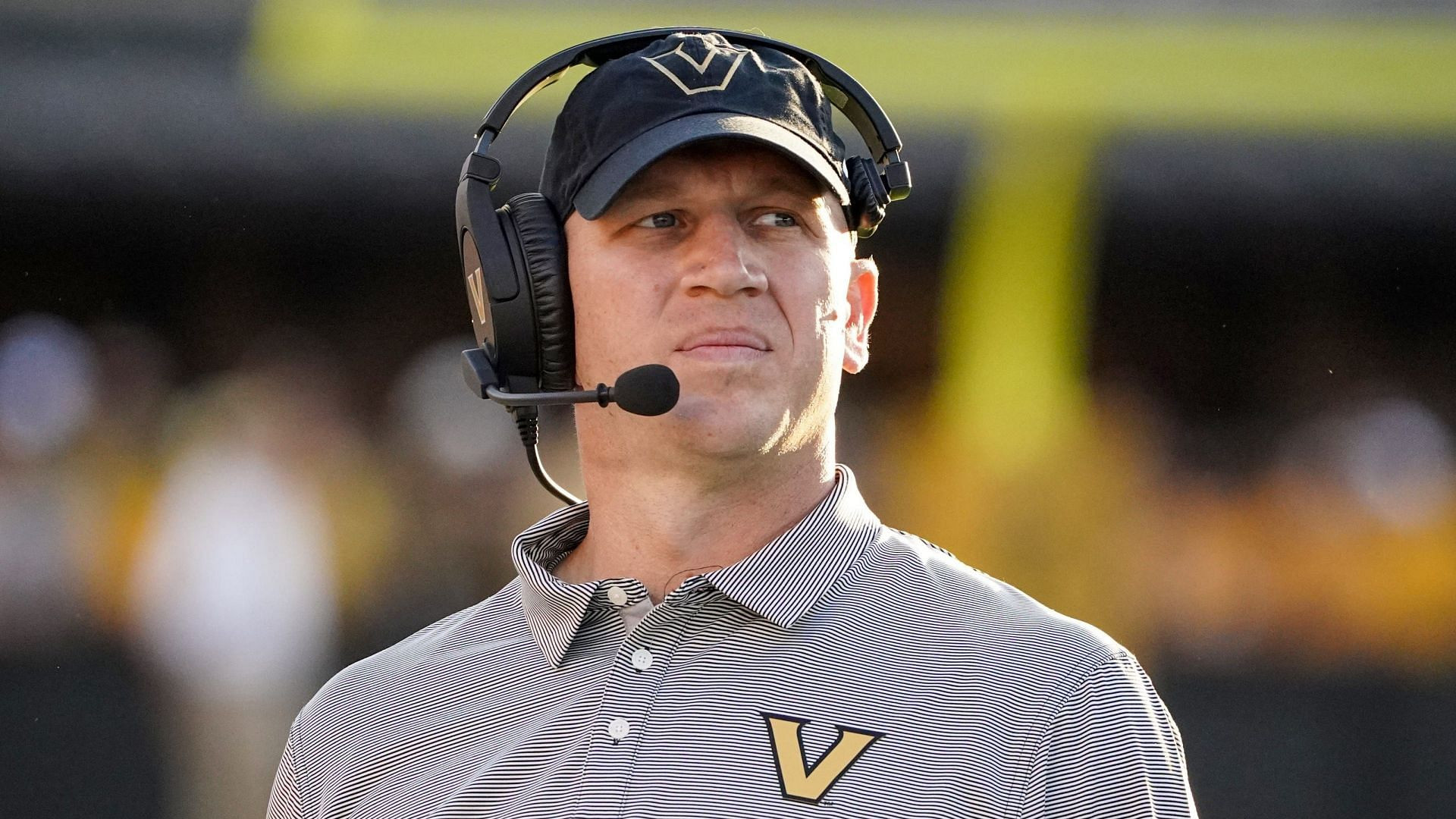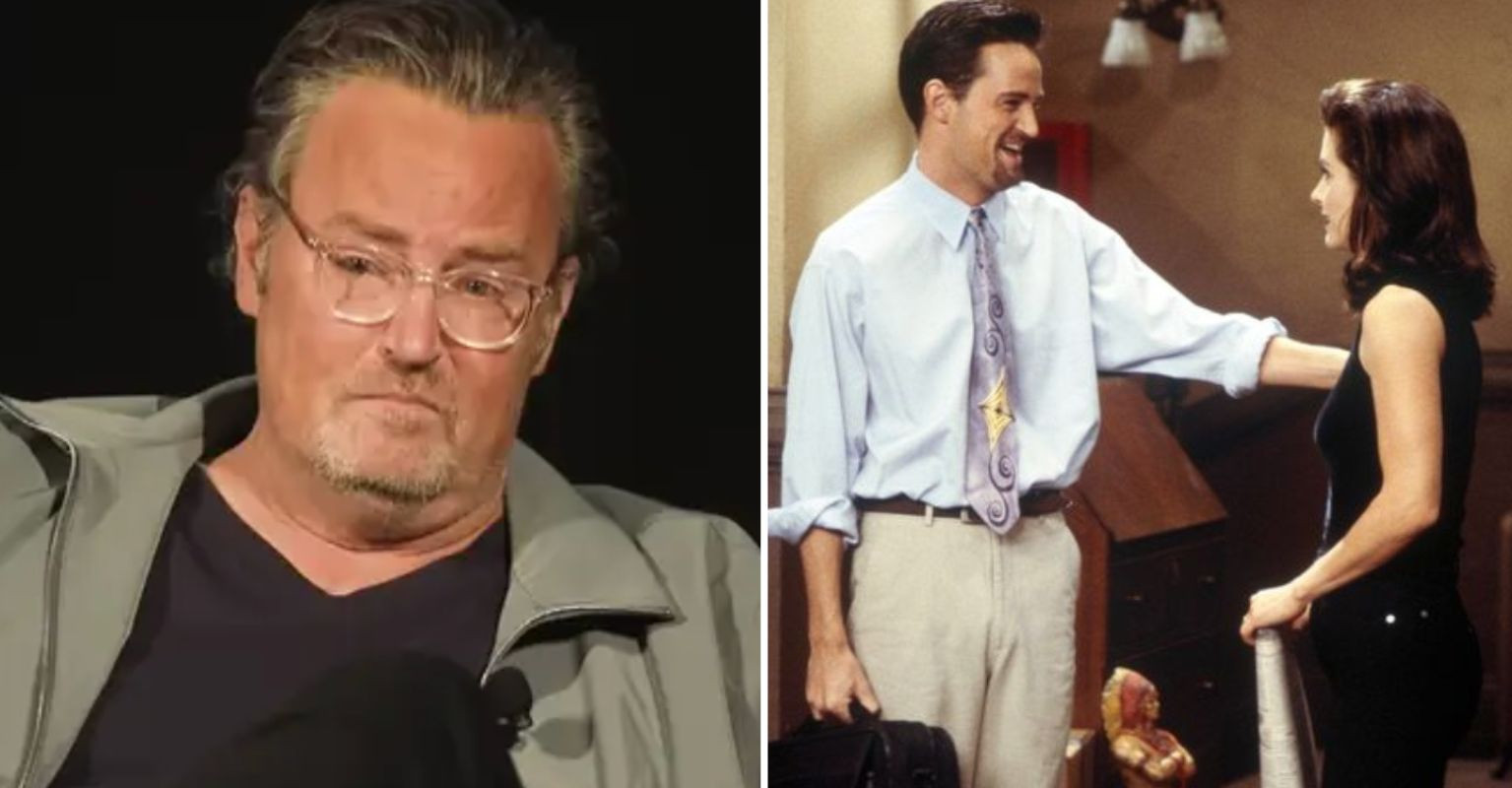The great political story of 2024 is President Biden’s decision to stand aside in favor of Vice President Kamala Harris. It is a story of selflessness, of a generational transition in the rise of Harris, and of a woman who has at times struggled to command the narrative coming into her own in a way that has energized the party, turned the race upside down, and roused deadened souls.
But this story, as dramatic as it is, may obscure the deeper story, which is less about the transition from one leader to another and more about the ascendance of a new political style at the top of the Democratic Party. We are witnessing the rise of what I’m calling the Brat Pack, and with it a new approach that elevates attention over restraint, storytelling over self-explanatory policy mindedness, fight picking over always taking the high road, and thrilling the base over diluting for moderates.
For years, I have reported on a quiet civil war within the Democratic Party. If I had to sum up the schism, I would say that one side was defined by sobriety, risk aversion, a focus on doing the work rather than talking about it, staying high-minded, and refusing to compete for attention with a carnival barker. The other side was more interested in risk-taking, storytelling as a paramount goal, speaking to emotion, making people feel things and want to sing from the rooftops, grabbing and holding attention. In recent years, the former camp has been firmly in command.
But the other faction was lurking around all along. Perhaps they were deputies rather than principals, and they went with the dominant approach despite their yearning to try something new. Often they were earlier in their careers, and they told themselves that they were putting in their time, and one day they would usher in the new ways.
My best, most distilled understanding of what has happened in the transition to a Kamala Harris campaign is that the civil war has turned. Harris may have inherited much of Biden’s campaign apparatus and its players, but many at the top are new — Harris’s people. And in the giant threadbare temporary startup that is a presidential campaign, the faction that long wanted a different, fresher way seems to be winning.
With apologies to the earlier incarnation, I’ll call them the Brat Pack, after the campaign’s embrace of a pop star’s embrace of Harris. I believe their rise is the most underrated story of this race, and the real subtext of what we’re about to see at the convention this week. And so in what follows I wanted to break down some of the defining features of the new Brat Pack approach — the new style and orientation that is taking over the Democratic Party.
Storytelling
The Brat Pack approach emphasizes storytelling over the idea that good policies and good results should be self-explanatory. We are seeing a shift from a view of “The work should speak for itself” to “Nothing speaks for itself. You’ve got to tell the story.” I often detected in my conversations with high-level Democrats a contempt for story. It took different forms. In 2019, I wrote about Bernie Sanders’s near-refusal to tell his own personal family story, even though it would have helped him tremendously, as many of his staffers believed and argued to him. The Biden administration was huge on tangible accomplishments and improvements in inflation numbers and relatively less interested in touting these things in ways that broke through — which you can blame on the media, but when you’re blaming the media, you’re losing. My best-faith understanding of this way is that it comes from a sense that voters should be treated with respect, as reasoning creatures who will appreciate actual achievements and will reward you for what the documented progress actually is. The Brat Pack is moving away from this “nose to the grindstone” approach. Sometimes you’ve got to rise from the grindstone and sing for all to hear.
Attention
The Brat Pack stresses attention. Its approach reflects an overriding interest in commanding it. Too many of us in the media and in politics and in book publishing and many of the other worlds I know best are still living in the past. Stuck in a world in which Walter Cronkite told millions of people what they needed to know and how to think. We have not adjusted to a new media world whose fundamental quality is fragmentation and whose most precious resource, therefore, is human attention. The until-now-dominant approach didn’t see the pursuit of attention as an end in itself. Sure, you wanted people to know about your policies and vision, but you wouldn’t necessarily contort yourself to make people notice. You wouldn’t make weird videos, try weird stuff. You wouldn’t experiment, as I have long urged President Biden to do, with reviving FDR’s Fireside Chats for the twenty-first century. You wouldn’t take the risk of doing a stunt or being hyper-reactive for the sake of commanding notice. There was a sneering at the attention-seizers. When someone like Congresswoman Alexandria Ocasio-Cortez rose on the strength of her attentional intelligence, some dismissed her and others struggled to emulate her, showing the distance between the mainstream and her. Under Harris, the Brat Pack is showing a complete break from the old approach. The new style centers the pursuit of attention, embraces memes, is willing to try weird things, and, above all, understands that you win when people cannot look away. We are finally not having Trump’s conversation.
Emotion
One of the most interesting debates I’ve had in recent years, with people who think deeply about fighting authoritarianism, is about whether pro-democracy movements can and should seek to compete with autocrats’ skill at catering to the emotions. My former New York Times colleague Roger Cohen and I had a spirited back-and-forth about this not long ago, after he wrote about fascism’s power to “get the blood up” and democracy’s relative dullness, its almost purposeful dullness. Roger channeled a view that has been very influential in general, including at the highest levels of the Democratic Party: that you don’t want to become like the fascists in fighting the fascists (which, fair enough), and (here I get more skeptical) that this means carrying yourself as the sober counter to their electric pursuit of sentiment. This is where I, along with many of the people lurking in the wings whom I’ve been reporting on, disagree. I believe it is totally possible to make people feel big feels for the democratic cause, and I don’t think it’s dangerous. But the vibes faction wasn’t in charge all these years. And now, in the rise of the Brat Pack, they are. If I understand them right, they believe at bottom that you can, and indeed must, seek to compete with fascists for the emotional life of people, that you must take an organizer’s approach to helping people process a bewildering age and the dislocations of change and the resentments that come with progress and the pain of capitalist predation. The new style recognizes emotional labor, if you will, as vital to political work. That is why Harris and Governor Tim Walz are constantly talking about “joy.” That is why the campaign has embraced the notion of the centrality of vibes, not just policy. The Brat Pack doesn’t have any disdain for emotion.
Culture
The Brat Pack wants to play in the culture. A constant lament of organizers and activists and electoral campaigners on the broad left in recent years has been the lack of savvy engagement in the culture. The right has its MAGA hats. Where were the left’s hats? The right has racist songs about small towns. What anthems have risen to the fore and held the nation in thrall to represent values of pluralism, multi-racial democracy, and freedom? For some years now, Democrats have been absent from the culture of the nation in a way that makes no sense given the party’s near-monopoly on top-tier artists who side with them. In the rise of the Brat Pack, you’re seeing a total shift. Memes are back, and there is a willingness to engage with them, in spite of the risk of backfiring or losing a little dignity. There is a Beyoncé anthem that makes the campaign’s rallying cry of “freedom” something that can be felt in the body, not just known in the mind. You can imagine prior generations of Democratic campaigns that would have tried to rein in Vice President Harris’s laugh because of right-wing attacks on it, or told Governor Walz to stop his hilarious habit of doing a Broadway-style leg kick on stage. But this is no longer that kind of Democratic campaign. Something, once again, has shifted. There is on the upswing a view that if you can leap from politics into the culture, always take that deal.
Going Low
The Brat Pack is worried about going high when they go low. Former first lady Michelle Obama has said she was misunderstood when she said, “When they go low, we go high.” She said she never meant it as a call for unilateral disarmament. But that notion of going high and staying high, even in the face of true depredation from the extreme right, has felt like the dominant approach in recent years — and often a very frustrating one. Many Democrats in recent years have been hesitant to punch back, wary of name-calling, averse to impugning motives and tarring genuinely un-American policies as un-American. As Senator Chris Murphy told me some time ago, “Democrats, we believe in subtleties. We don’t believe in good and evil. We believe in relativity. That needs to change.” Well, it’s a’changing right now. The Brat Pack is breaking from Michelle Obama’s famous phrase. It is not interested in going high no matter what. It is not interested in staying above the fray. It has finally embraced the kind of rapid reaction to Trump’s madness that has long been called for. And the tone of the Harris campaign’s statements is breathtakingly fresh, a true and very notable break from the “go high” way. See, for example, this absolute queen shit:
Mobisuasion
Perhaps the most politically significant element of the Brat Pack’s way is the rise of what one of its leading gurus, Anat Shenker-Osorio, calls “mobisuasion.” This is the theory that Democrats should not seek to persuade by diluting their offerings to reach out to the middle, the moderates, the centrists, whatever. Rather, they should seek to “animate the base to persuade the middle.” You mobilize your own people, your core supporters, offering them things that genuinely excite them, and you trust that their excitement will be infectious, creating a contagion that eventually touches their more conservatives relatives and neighbors and friends. Anat, who is no stranger to Ink readers, is perhaps the person who has recently experienced the biggest shift from “excellent advice not being listened to” to “excellent advice now steering the whole ship.” She is the philosopher-queen of the Brat Pack, and in some sense what we are seeing now is the triumph of her and her allies’ approach, at last. You don’t have to know whether the people running the Harris campaign are listening to Anat’s methods to know that they clearly are.
In theory, Mobisuasion sounds great, right? But it hasn’t really been embraced at the highest levels in recent years. Instead, what has dominated is a fetish for courting Ohio-Diner Americans — white-working-class, moderate or even right-leaning voters who tend to think Democrats are communists and God haters. Memo: Those people often fail to come around, despite the attention lavished on them, and in the meantime, the courting of them, and the dilution it requires, depresses the hell out of your base, and nobody is left very happy. The Brat Pack, thanks to Anat’s long campaign of persuasion to change how Democrats seek to persuade, is embracing mobisuasion. If you look closely, you will notice that this campaign is the first in memory seemingly not to worry a lot about the Ohio-Diner American vote. Which is not to say they are not courting it. But they are not tempering the message for white-working-class voters. They are inviting them to come aboard the joy train. It is a campaign that is not centered on reassuring the people the Rev. Dr. Martin Luther King called the “white moderate.” In selecting Walz as her running mate, Harris instead seemed to choose an approach of showing many white-working-class voters that they can be who they are and be part of a pluralist future and be allies. They can join the future. The future won’t stop for them.
Reclaiming
The Brat Pack is helping Harris reclaim the mistakenly forsaken frames of patriotism and freedom. As two insightful recent reports in The Times have observed, Harris has embraced the language of freedom typically heard from Republicans and embraced the language of patriotism also claimed by the right — finding her own progressive incarnations of these ideas. These twin embraces have been championed by voices like Anat’s in recent years, but they have struggled to come to pass for a few reasons. One is that elements of the progressive left are deeply uncomfortable with patriotism and with a frame of freedom, finding them right-wingy and cringe. Another is that more moderate elements of the left sometimes do talk in this way but end up adopting Republican frames in the process that undermine Democrats’ goals. It’s not helpful to talk about patriotism if you’re going to use that to support draconian counterterrorism policies; it’s not helpful to talk up freedom if you’re going to use that to undercut universal healthcare. What is happening now, and perhaps reflects the Brat Pack’s way, is an interest in claiming patriotism but making it one’s own, a progressive patriotism for a multiracial democracy that is still in the works, a way of talking about American democracy that doesn’t erase what’s wrong nor skip over all that’s right. In many ways, it is a way of talking about patriotism that grows out of communities of color and stretches back to the Civil Rights Movement, where Dr. King found ingenious ways of honoring the American founding fathers and documents while invoking them to summon the nation to resolve unfinished business:
These are the elements of change as I see them. Admittedly, it’s early days. And I can only see what I see from the outside, observing the results of the work. I am not privy to the mechanics of how a new crop of strategists is overturning the old ways. And, of course, many of the people driving these changes have been in campaigns all along. This is not a question of old staff being replaced by new staff. It is, from what I gather from people close to the process, a matter of old ideas being replaced by new ones, and the new ideas being carried out by a team of old and new hands, some of whom have long been waiting for this day to come.
Beyond the specific elements, a final word about what they add up to. The Brat Pack is pushing the Democratic Party in a more dice-rolling direction. Take the risk, try the weird thing, shock people a little, channel your inner Bonnie Raitt and let’s give ’em something to talk about. It is the rise, perhaps, of a more fearless Democratic Party: fearless about how it communicates and crafts statements, fearless about not pandering to the white moderate, fearless in picking a vice presidential nominee based on chemistry rather than electoral calculus, fearless about hitting back and even being deservedly vicious, fearless about making jokes about Walz’s inability to eat spices and trusting that people will appreciate the playful ribbing rather than believe, with Ben Shapiro, that whiteness is under attack, fearless in shaking things up on the assumption that the old ways won’t beat fascism.
Yes, we have a new candidate in Harris. But don’t sleep on the deeper shift. A new political style is on the rise. The Brat Pack has a plan to defeat Trump. Will it work?


















